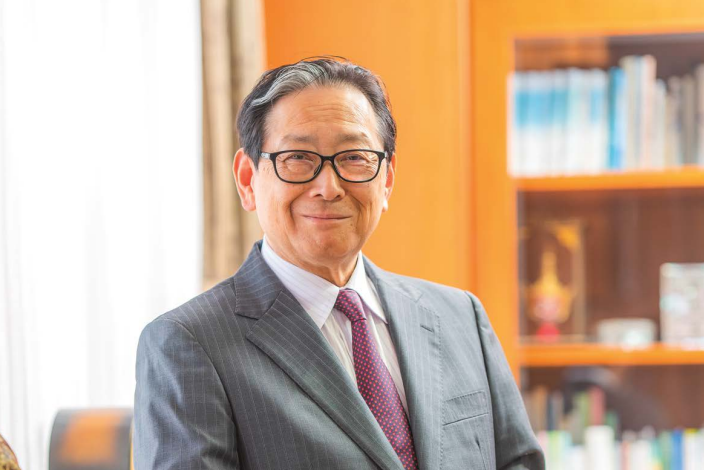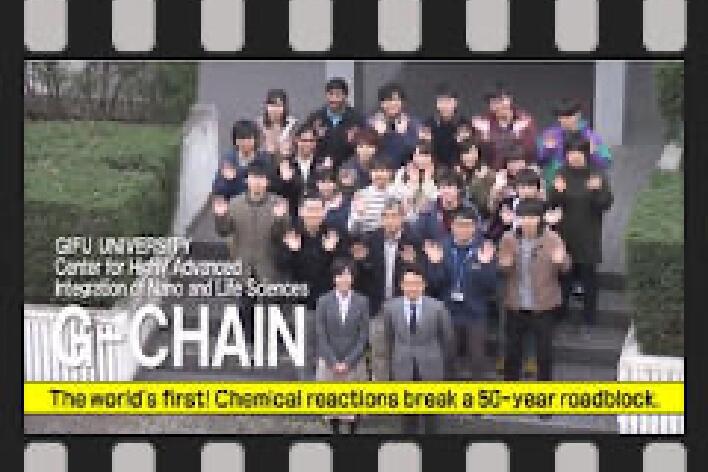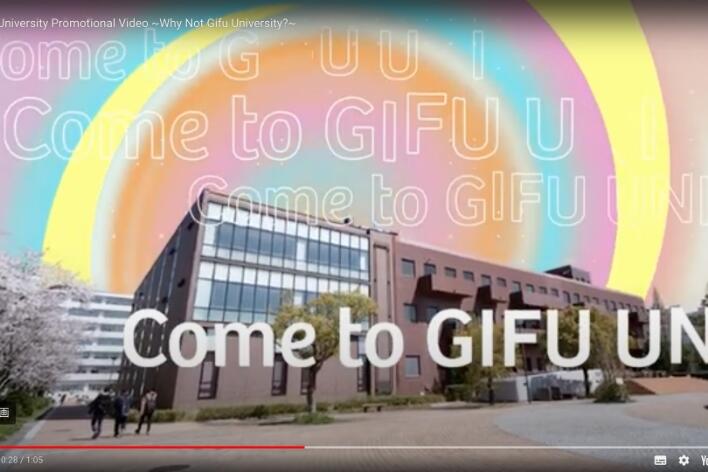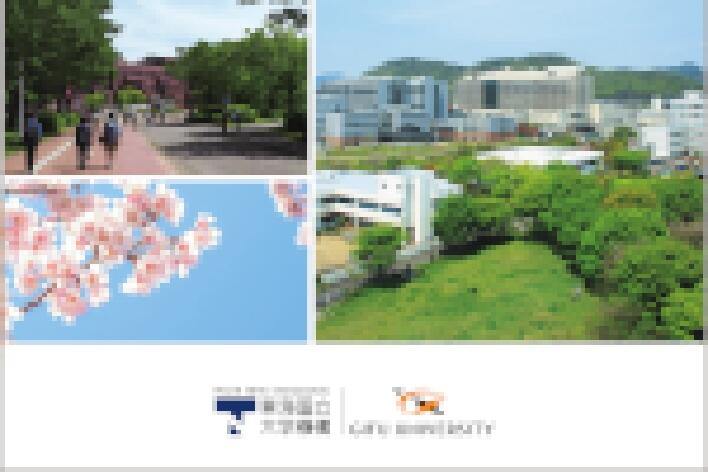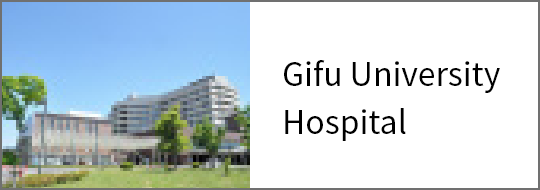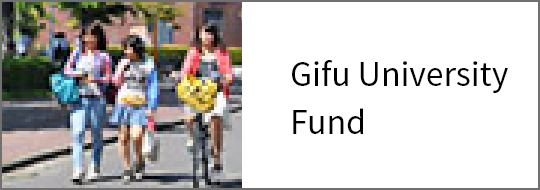We train leaders to solve the basin water environment problems that developing countries face.
"Gifu University Rearing Program for Basin Water Environmental leaders"
Through classes in a wide array of fields, group internships with partner companies, and rich international exchange among students, our goal is to impart the specialized knowledge and communication strengths needed to solve basin water environment problems.

River Basin Research Center, Gifu University
Head of Promotion Office,
Gifu University Rearing Program for Basin Water Environmental Leaders
Professor Li Fusheng (right)
Gifu University Faculty of Applied Biological Sciences
Professor Ken Hiramatsu (left)
Eligible students: Master program, three divisions (Civil Engineering, Environmental and Renewable Energy Systems in the Graduate School of Engineering, and Agricultural and Environmental Science in the Graduate School of Applied Biological Sciences)
*Completing students of particular merit are eligible for progression to doctorate course
The "Gifu University Rearing Program for Basin Water Environmental Leaders" cultivates human talent to lead solutions to basin environmental problems in developing countries. Enrolling both Japanese students and foreign students, many classes are conducted in English to improve international communication capabilities. Students in the Environmental Leadership training program master specialized knowledge and skills in a wide variety of fields where their coursework serves as a mutual complement to specialized courses in their own division. Through a multidisciplinary understanding of the origins of problems, for example, through study of the associated political, economic, and social aspects of the problems, students gain the ability to propose solutions appropriate for the state of infrastructure development where they are applied.
Many countries in Asia and Africa experience a host of different basin water environment problems, including water quality and water resource issues, supply of water for agriculture and irrigation, and hydrospheric ecosystem problems. The goal of the "Gifu University Rearing Program for Basin Water Environmental Leaders" is to develop human resources able to act in drafting policies and solving these hydrosphere problems in developing countries. The program provides a curriculum that cultivates the broad insights and high-level communication skills needed to solve these diverse problems.

Environmental Issues", a volume of
presentation materials prepared by
students in the Joint Seminar, post-edited
and collected by the students and
published in 2017. In addition to
explaining social and cultural aspects of
basic water environmental issues, the
volume presents the issues from the
perspective of students from different
countries.
The master degree students participating in the program are affiliated in any of three divisions: Civil Engineering or Renewable Energy Systems in the Graduate School of Engineering, or Agricultural and Environmental Science in the Graduate School of Applied Biological Sciences. Students in each division extend their specialized knowledge through coursework relating to basin water environmental problems in their respective fields. However, this work alone only allows discovery of solutions from a biased position, so courses are given in a wide variety of fields and include "complementary coursework" which spans the three divisions, and "humanities and social sciences -related coursework" which covers local culture and customs. Additionally, more than half of the students are foreign students, and many of the classes are conducted in English to provide an international atmosphere. For example, in the "collaborative seminar", students break out into small groups including both Japanese and foreign students and engage in presentations and discussion using English. Presentations are made by each group and students need gather for several times for preparation outside of class hours. In many cases, English is needed for an exchange of opinions, so even students who are introspective at the outset feel themselves gradually mastering an active role and greater command of language as they seek to convey their own thoughts. Beyond rich interaction between Japanese and foreign students, the interrelation between students in different divisions is an excellent opportunity to encounter a broad range of opinions and will certainly prove useful in the future for synthesizing diverse opinions.
In addition to the coursework, practical education is a program component. In the "special practicum for environmental leadership training", students hear lectures given by personnel from companies involved in basin environment; in "group internships", foreign students tour wastewater treatment systems in Japan, while Japanese students do the same abroad, making strong links with external organizations another advantage of the program.
What we ask of the students is that they make good use of their international exposure, broad perspective, and specialized knowledge gained through this diverse coursework, and that they seek an active role as leaders in their various countries. We would also be happy to see them become researchers or educators who produced new leaders for a "cycle of watershed environmental leadership training" yet to come.
Introduction to Coursework
Collaborative seminars


In preparation for joint seminar presentations,
students meet in study groups and prepare
presentation materials on the topic selected
by each group. From the preparation stage,
professors in the Promotion Office of the
program provide students with several
sessions of one-on-one or more intensive
advising on aspects of presentation including
content and English phrasing.
The objective of joint seminars is to broaden perspectives through sharing of diverse knowledge about environmental problems, and to improve presentation and communication abilities. Students form groups of 2-3 from different countries, each including at least one Japanese student, and engage in group study, paper preparation, in-class presentations, whole-class group discussions with presenters as facilitators, and overall summaries by presenters. There are 16 sessions in alternate weeks throughout the year, with presentations by two groups in each session. Presentation topics are selected by students themselves, based on an interesting variety of proposals designated by instructors (150 topics in 10 categories including water environment, water resources, ecosystems and diversity, energy, disasters and disaster prevention, waste treatment and reuse, globalization, etc.). Presentation material preparation, presentations, and discussions are all conducted in English.
Group Internships
 In group internships, students participate in practical training and gain on-site knowledge and experience under the guidance of partner companies, policy makers, and administrators active at the forefront of the basin environment field. Students from outside Japan learn about topics such as water quality analysis and water treatment technologies, and Japanese students placed in developing countries learn about issues such as water treatment and energy demand, initiatives on local environmental problems and their current status, and history and culture.
In group internships, students participate in practical training and gain on-site knowledge and experience under the guidance of partner companies, policy makers, and administrators active at the forefront of the basin environment field. Students from outside Japan learn about topics such as water quality analysis and water treatment technologies, and Japanese students placed in developing countries learn about issues such as water treatment and energy demand, initiatives on local environmental problems and their current status, and history and culture.
Special Practicum on Environmental Solutions II
 The Practicum is a doctoral course of open practice lectures attended by instructors, students, and others which cultivates the ability of students to lecture from their specialized knowledge. Students form groups according to number of participants and areas of concentration, discuss the entire sequence of lectures within their groups, and prepare their own lecture materials and audience evaluation sheets.
The Practicum is a doctoral course of open practice lectures attended by instructors, students, and others which cultivates the ability of students to lecture from their specialized knowledge. Students form groups according to number of participants and areas of concentration, discuss the entire sequence of lectures within their groups, and prepare their own lecture materials and audience evaluation sheets.
Student Interviews
I've studied in a global environment.
It's a turning point in my life.

2nd Year Master Student,
Agricultural and Environmental Science
Graduate School of Applied Biological Sciences, Gifu University
Keigo Muto
Participating in the program has given me a feel for cultures from different countries and the thinking of foreign students, which has increased my motivation to test my own strengths in diverse environments, and with a global perspective. It's also been extremely refreshing and interesting to have gotten a feel for engineering-based approaches to the things I've learned thus far; it's a tremendous asset. After graduation, I'd like to make good use of the communication skills and broad knowledge I've learned in the program to work on "effective utilization of water resources" and "solving water problems" in diverse areas both inside and outside Japan, and with an interdisciplinary perspective.
I want to use the broad knowledge
I've gained to contribute to Indonesian development.

2nd Year Doctoral Student,
Environmental and Renewable Energy Systems,
Graduate School of Engineering, Gifu University
Erda Rahmilaila Desfitri
I came to Japan from Indonesia in 2015, and primarily I've studied environmental problems. In Indonesia, water problems involving issues like drinking water and household wastewater, and solid waste-related problems are severe. In this program, I'm gaining knowledge to solve these sort of problems. In the "joint seminar", we also exchange opinions with students from various countries, which has given me a chance to hear opinions in a respectful way from people who think about things differently, and with an understanding of their culture. I'm planning to go on to a PhD. After graduation, my plan is to go home to become a university instructor, share what I've learned at Gifu University with my own country, and make good use of the broad knowledge I've gained to contribute to Indonesian development.

